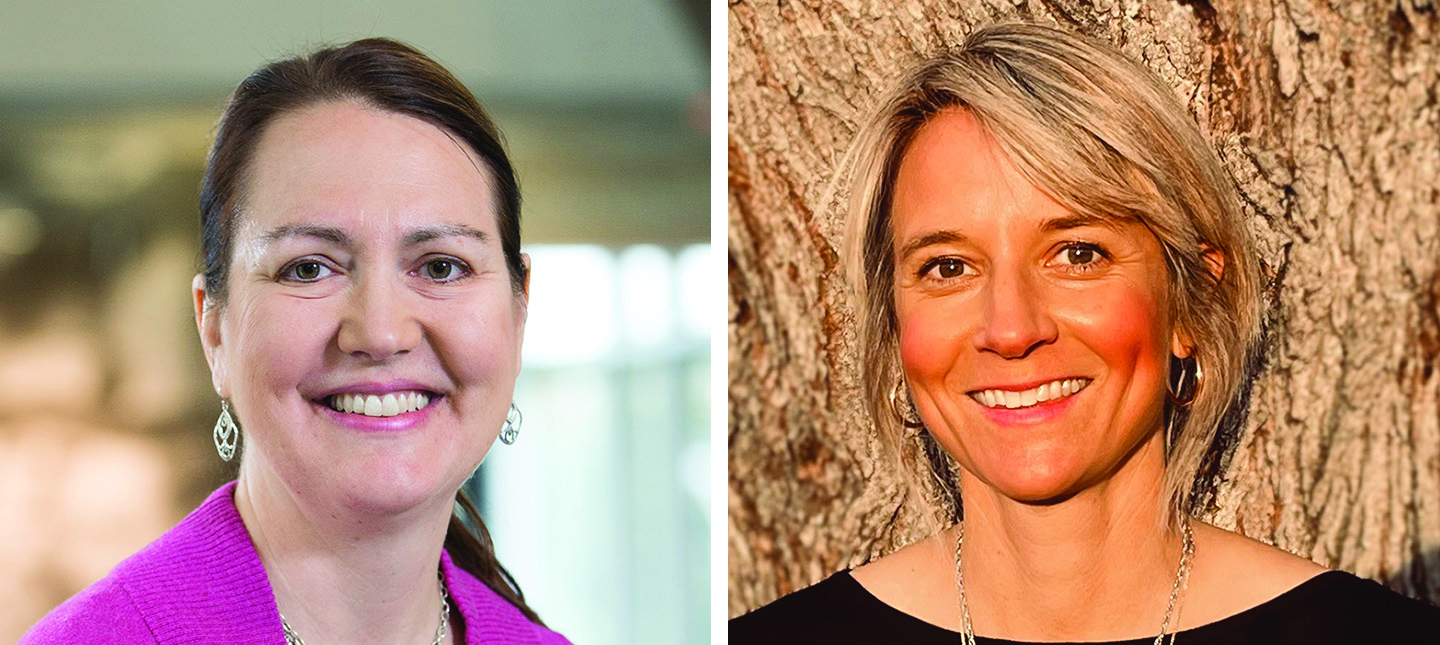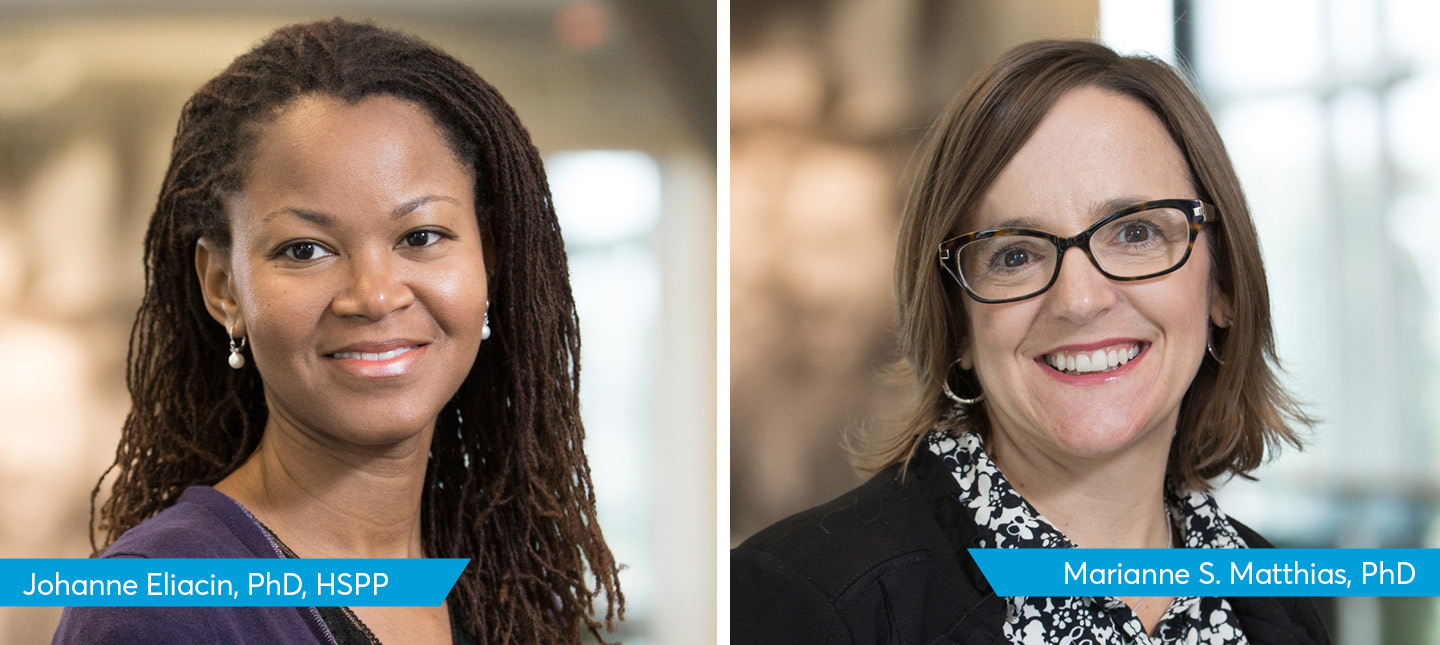Insight into disparities can help meet needs of LGBT people with dementia and their caregivers
A new study of caregivers of LGBT older adults living with Alzheimer’s disease provides rare insight into the intersection of caregiving and the LGBT experience.
Researchers from Regenstrief Institute and the medical schools of Indiana University and University of Colorado report that many common caregiver experiences — such as feelings of social isolation and of being overwhelmed — are similar for caregivers, whether an individual with Alzheimer’s disease is LGBT or not. However, because LGBT older adults often do not have adult children who can serve as caregivers or may be estranged from their families of origin, provision of the care they need, frequently provided by spouses or partners, is especially challenging.
Health disparities experienced by LGBT individuals have been well documented. Risk factors — such as higher rates of smoking and alcohol consumption in the LGBT population – often lead to poor health outcomes and increase the likelihood of Alzheimer’s disease in older LGBT adults and amplify the challenges faced by their caregivers.
“We wanted to explore how health disparities affect LGBT persons with dementia and their caregivers. It is not surprising that many of the experiences of caregivers of LGBT older adults with Alzheimer’s disease are very similar to those of any caregiver. But we found that in many cases those providing care for LGBT individuals with dementia felt they had to come up with their own solutions to challenges because the ones that have been created were not inclusive in some way,” said study senior author Alexia Torke, M.D., M.S., of Regenstrief Institute and Indiana University School of Medicine. “We found that caretakers of LGBT older adults often wrestled with whether or not support groups would be supportive and they had mixed experiences. One caregiver reported not knowing where to go to find a lesbian support group, while another joined a general support group in her partner’s assisted living community and found it to be very welcoming.”
“Our phenomenological study of the experiences of caregivers for LGBT older adults with AD found themes similar to the concerns of all caregivers, including the importance of social support, financial security and grief and bereavement support. But it also showed that LGBT status could affect the experience of healthcare in various ways, including raising concerns about discrimination and acceptance in care settings,” said study lead author Carey Candrian, PhD, of the University of Colorado School of Medicine. “The importance of doing qualitative research is that we acquired a lot of depth in terms of the information discovered. The LGBT caregiving experience is something where there isn’t a lot of research, and this qualitative work can help us determine the most important questions we need to be asking.”
Caregivers of LGBT individuals with Alzheimer’s disease may feel that they’re shouldering a heavier burden by themselves given a limited support network due to not having children and lack of family of origin support,” said Dr. Torke. “And there’s another dimension to this, for future study, which is that issues that all caregivers experience might actually be more challenging for LGBT caregivers. For example, until recently, marriage was not a possibility, and some of the couples did not necessarily get married, which might affect insurance benefits and caregiver access.” The 19 caregivers participating in the study ranged in age from 44 to 77 years old; 74 percent were lesbian, 16 percent were gay, 5 percent were straight, and 5 percent were unknown. They were from California, Colorado, Georgia, Maryland, Connecticut, New Mexico, Minnesota and Missouri, providing a demographically diverse perspective.
Slightly more than half of the caregivers were spouses of the person with dementia and a quarter were identified as a spouse equivalent or unmarried partner. Approximately two-thirds of the caregivers had been in a relationship for 15 years or more with the person living with dementia.
Conducting and analyzing in-depth interviews with these caregivers, the researchers identified five themes:
- Caregiver tension and isolation,
- Financial stress and security,
- Lack of social support and connection,
- Engineering grief support,
- Entrapment of past and present stigma and discrimination
One of the most interesting findings of the study was that the LGBT experience is very diverse, with some individuals feeling they had a close, tight knit social circle that was incredibly supportive and others feeling like their LGBT status made their social circle smaller and their stress much, much higher,” said Dr. Torke. “It’s important to recognize that being LGBT can affect people in diverse ways, but in some ways can be thought of as a strength where a person might have close friendships or what people often refer to as a chosen family if they have bad relationships with their family of origin.”
Noting that LGBT individuals become caregivers at a higher rate than the general population, the authors write: “Discrimination related to LGBT status was an important theme over the participants’ lives and occurred for several during dementia care. While other themes were similar to prior AD studies, LGBT status affected these other aspects of the caregiving experience. Findings can inform future programs that better meet needs of LGBT people and those who care for them.”
“Experiences of caregiving with Alzheimer’s disease in the LGBT community” is published in BMC Geriatrics.
Authors and affiliations:
Carey Candrian, PhD, University of Colorado School of Medicine
Emily S. Burke, B.A., Regenstrief Institute
Danielle Kline, University of Colorado School of Medicine, M.S.
Alexia Torke, M.D., M.S., Regenstrief Institute and Indiana University School of Medicine
This work was supported by a National Institutes of Health (NIH) supplemental grant to Dr. Torke’s Midcareer Investigator Award in Patient-Oriented Research (3K24AG053794-04S1).
About Alexia Torke, M.D., M.S.
In addition to her appointment as a Regenstrief Institute research scientist, Alexia Torke, M.D., M.S., is the inaugural chief of the Section of Palliative Medicine in the Division of Internal Medicine and Geriatrics and a professor of medicine at Indiana University School of Medicine. She also directs the Daniel F. Evans Center for Spiritual and Religious Values in Healthcare at Indiana University Health.
About Carey Candrian, PhD.
Carey Candrian, PhD is an associate professor in the Division of General Internal Medicine at the University of Colorado School of Medicine, and on the Board of Directors at GLMA: Health Professionals Advancing Health Equity. As a qualitative and community-based researcher, her goal is to effect change on an interaction and policy level so that older LGBTQ adults receive the support they and their loved ones want, when they need it most.
About Regenstrief Institute
Founded in 1969 in Indianapolis, the Regenstrief Institute is a local, national and global leader dedicated to a world where better information empowers people to end disease and realize true health. A key research partner to Indiana University, Regenstrief and its research scientists are responsible for a growing number of major healthcare innovations and studies. Examples range from the development of global health information technology standards that enable the use and interoperability of electronic health records to improving patient-physician communications, to creating models of care that inform practice and improve the lives of patients around the globe.
Sam Regenstrief, a nationally successful entrepreneur from Connersville, Indiana, founded the institute with the goal of making healthcare more efficient and accessible for everyone. His vision continues to guide the institute’s research mission.
About IU School of Medicine
IU School of Medicine is the largest medical school in the U.S. and is annually ranked among the top medical schools in the nation by U.S. News & World Report. The school offers high-quality medical education, access to leading medical research and rich campus life in nine Indiana cities, including rural and urban locations consistently recognized for livability.
About University of Colorado School of Medicine
The University of Colorado, Anschutz Medical Campus is the largest health care center between Chicago, Texas and the west coast, serving over 500,000 patients a year. The innovative campus architecture and state-of-the-art technology bridge education and research in three collaborative zones: an education zone with remarkable facilities for training future physicians and other health professionals; a research zone with ground-breaking, internationally renowned research; and a clinical care zone.










